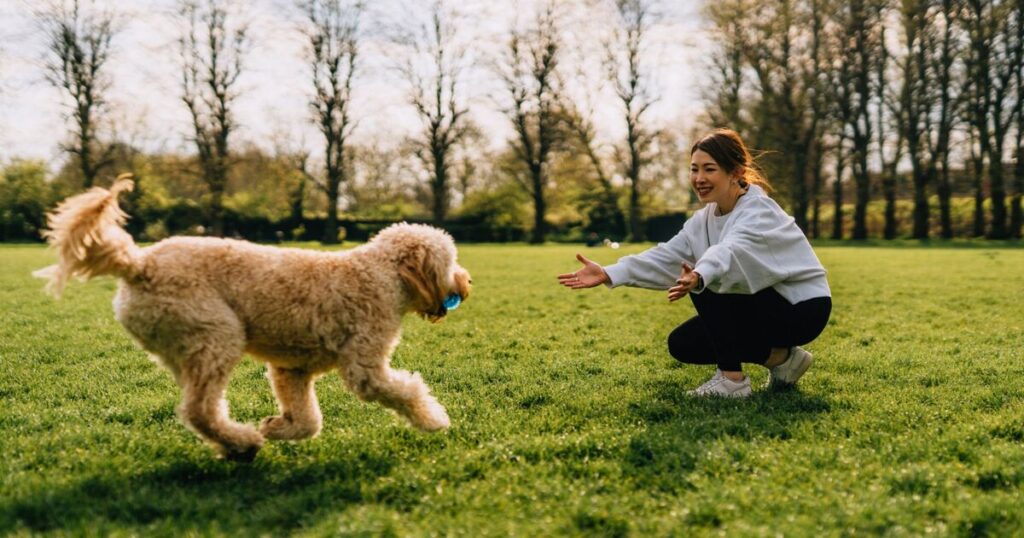
/latest/animals
As the wintry chill bites with its short days and cold weather, countless Brits feel their spirits dip in these gloomy months.
Shockingly, a third of UK folks supposedly wrestle with the sombre grips of seasonal depression annually. And now our four-legged friends might join this glum club.
Curious owners have been googling « my dog is depressed » at staggering rates – a whopping 463% upswing in the past month alone signals alarm for canine mood during these dreary times. But can dogs be downcast from the drab weather just as we are?
Enter Annie-Mae Levy, a savvy dog trainer from Woofz by nove8, who sheds light on whether pooches really catch the winter blues known as Seasonal Affective Disorder (SAD). Levy states: « There’s no solid evidence that dogs experience SAD the way humans do.
« While some dogs might seem different during the darker months, these changes are usually tied to underlying health issues. If your dog is acting out of character, it’s always best to check with your vet to rule out any medical problems. »
Annie-Mae has shared tell-tale hints that your pet needs to see a vet and not simply passing them off as a touch of the winter woes.
Low on energy
Among the list of worries is if your furry companion is unusually low on energy.
If your dog suddenly seems more inclined to lounge on the sofa, it may be a sign that they’re feeling under the weather. Our canine companions thrive on routine and activity, yet the absence of sunlight during darker days might just zap their zest for life, leaving them lethargic or disinterested in their daily playtime rituals.
You might notice they are shunning walks they normally relish or ignoring their beloved playthings. Be alert for increased slumber and a downturn in appetite as telltale signs as well.
Sleeping a lot and a loss of appeptite
Whilst all pooches are partial to a good old snooze, excess sleep could signal distress. If they start to sleep through playtime or forsake food for naps, it could point to pain or sickness, warranting a prompt visit to the vet.
A muted response to meal times or snubbing their usual treats can also indicate your pup may be suffering from a seasonal malaise.
Annie-Mae suggests « being vigilant » about such changes, which, although potentially reflecting a dip in mood thanks to darker months, might also hint at more serious health woes.
Clinginess
You might find your furry friend becomes unusually clingy as the nights draw in, sticking close by your side or seeking additional cuddles. This newfound neediness may be their way of asking for a little extra love when they’re not feeling top-notch.
A change in their mood
Keep an eye out, too, for any shifts in disposition – these mood alterations can speak volumes about your dog’s overall wellbeing.
If your usually cheerful pup seems grumpy or uninterested in their favourite activities, they may be showing signs of health imbalance. They might respond differently to other pets or people, displaying irritability or complete withdrawal.
These mood changes can be subtle and easy to miss at first, but if you notice them, try making some minor adjustments. Ensure they’re getting outside during the day; even a brief walk in daylight can help lift their spirits.
Dogs thrive on routine, so maintaining a consistent schedule for meals, walks, and playtime can help them feel secure and less stressed. If they’re still not behaving as usual, don’t delay seeking veterinary advice, says Annie-Mae.
A swift visit to the vet can help identify any health issues and get them back to feeling their best quicker.
This advice comes as another pet company, Pet Lab Co., shared tips on TikTok about how to cheer up your dog if they’re feeling down.
They recommend changing their toys to keep them busy and distract them from sadness, increasing their time with other dogs, and playing games with them such as ‘fetch’ and ‘tug of war’.
